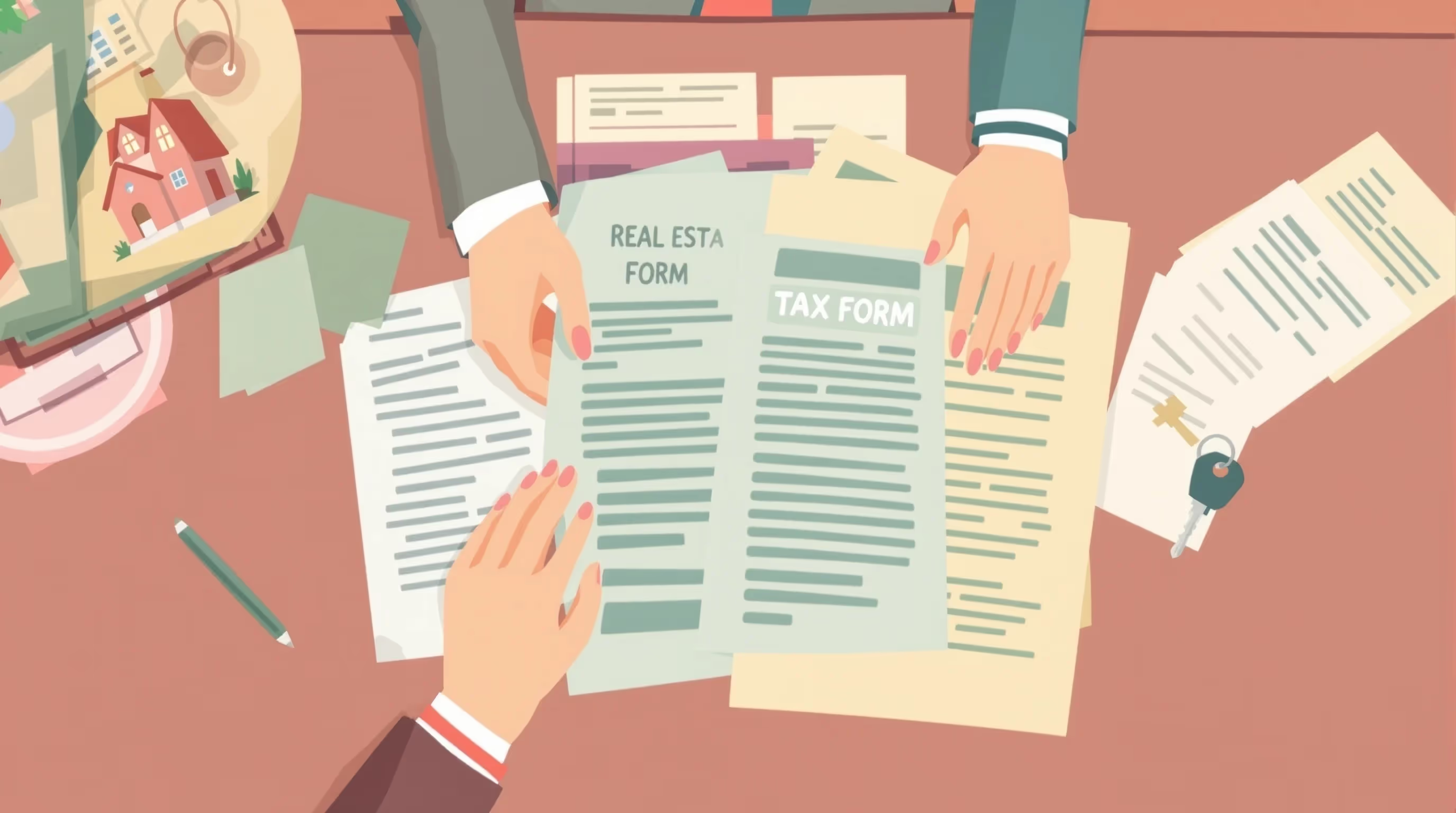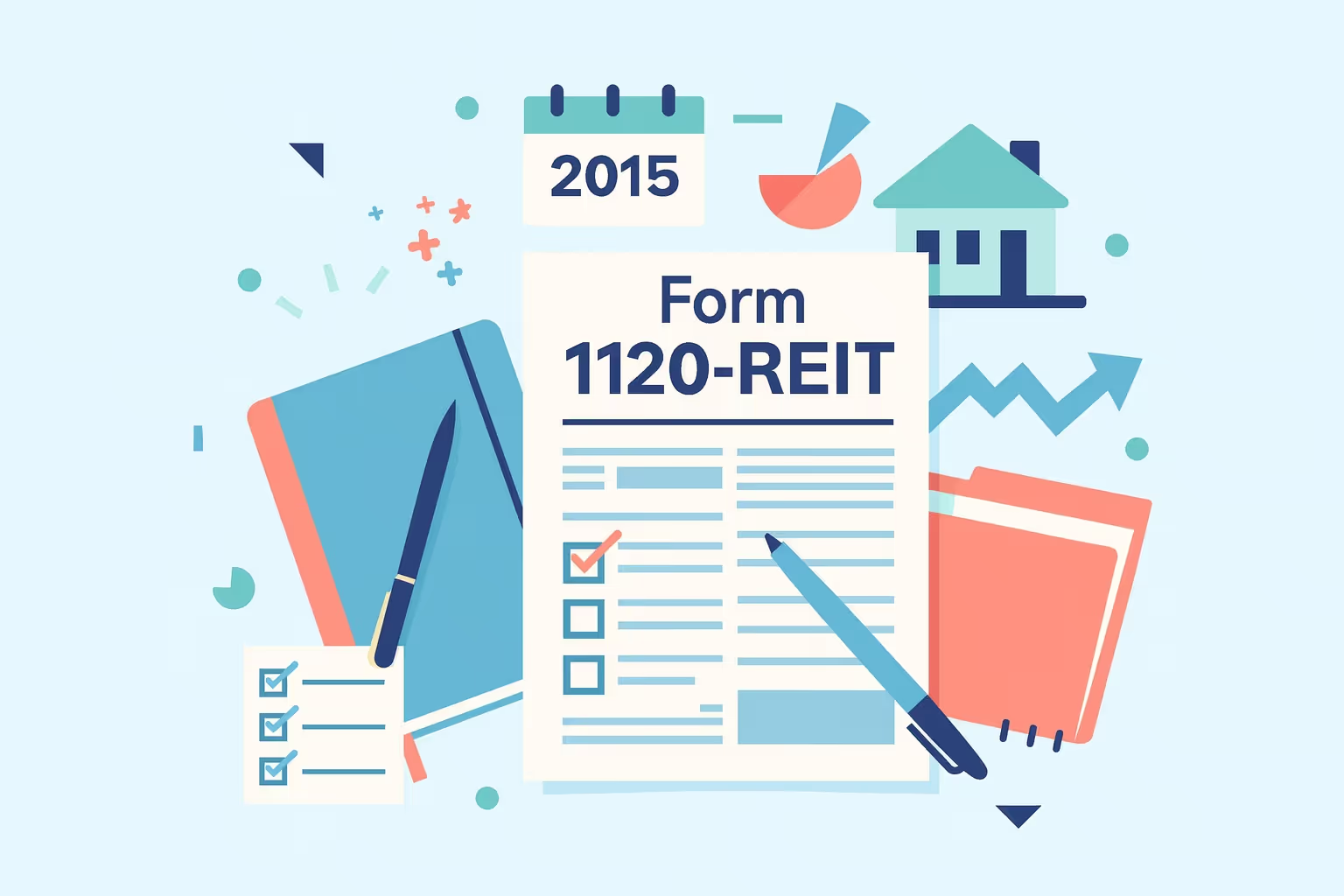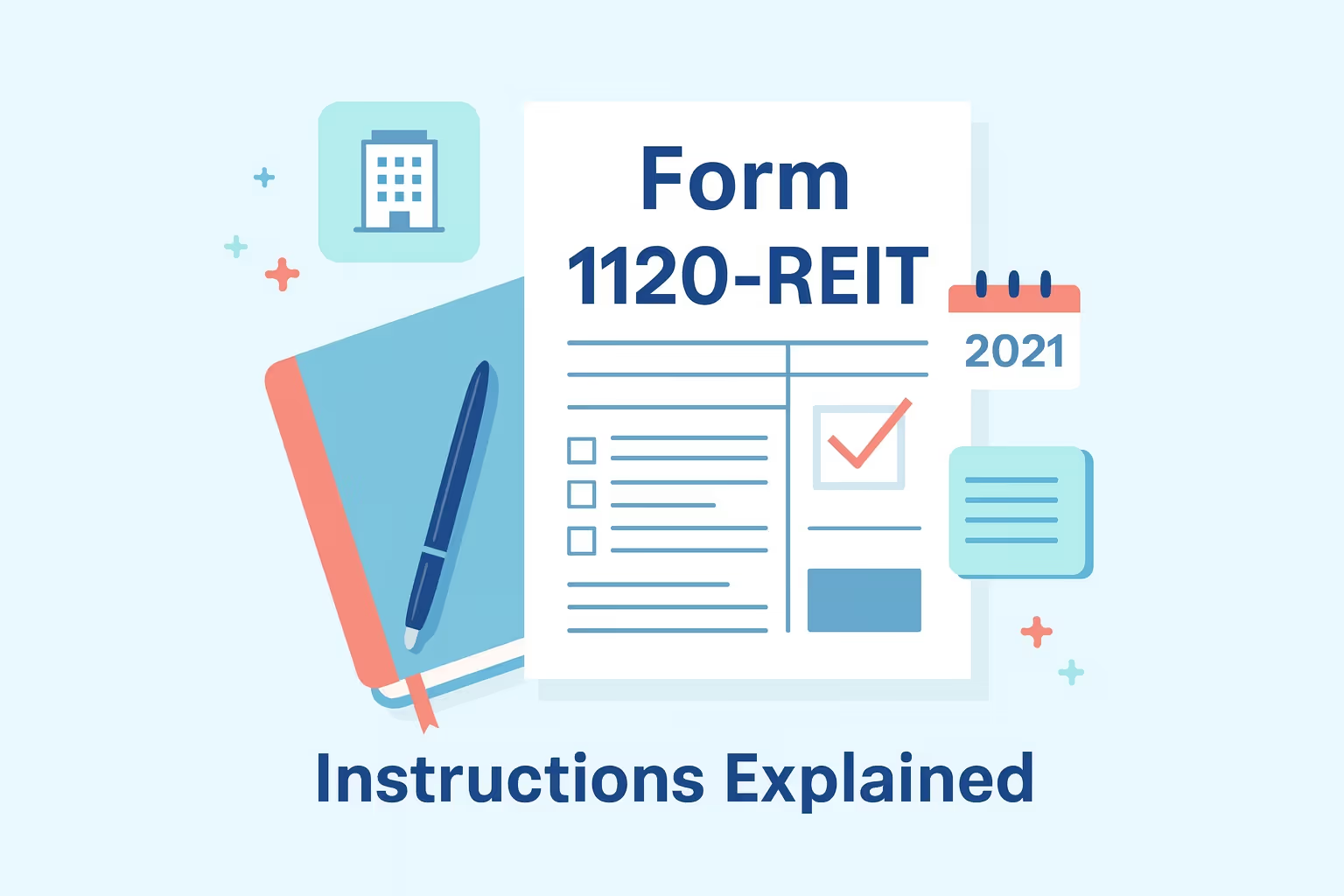
What IRS Form 1120-REIT (2021) Is For
IRS Form 1120-REIT (2021) is the income tax return used by real estate investment trusts to report income, deductions, credits, and any penalties for the tax year. Corporations, trusts, or associations that qualify and elect to be treated as REITs must file this federal income tax form and follow the instructions that apply to the specific year. The form allows businesses to calculate taxable income, document charitable contributions, and report payments or non-cash contributions made during the year.
REITs must use the correct version because rules are tied to the date and are not always equal from one year to the next. The IRS requires complete schedules, accurate details, and documentation that shows how the REIT met all shareholder and property tests.
For a detailed breakdown of filing requirements, eligibility rules, and updates for this version, see our Form 1120-REIT 2021 Instructions for REIT Tax Returns.
When You’d Use Form 1120-REIT for 2021 (Late or Amended Filing)
Some individuals and corporations may need to file or amend their 2021 return if they have received IRS notices regarding missing filings, balance discrepancies, or underpayment concerns. You would also file late if you discovered an error that changed income, deductions, or credits. If you expect a refund, you must request it within the limitations period, which is generally three years from the original due date or two years from the payment date, whichever is later.
Since the original due date for 2021 REIT returns fell in 2022, refund requests typically expire in April 2025. Late returns may incur interest and penalty charges, so it is essential to file promptly, sign all forms, and pay any outstanding balance due.
Key Rules Specific to 2021
- Business meal deduction expansion: REITs could deduct 100 percent of restaurant-provided meals for 2021, a temporary rule that applied before the first quarter of the next tax year.
- Higher charitable contribution limit: Qualified gifts to public charities and certain private foundations were deductible up to 25% of taxable income.
- Employee retention credit availability: Credits applied to wages paid before October 1, 2021, and could reduce income tax due if the REIT was eligible.
- Gross receipts threshold: Businesses meeting the small-business exception used a $26 million gross receipts test, computed using the prior three years.
For complete details on wage reporting, withholdings, and unemployment tax filings, see our guide to Form 1120-REIT – Real Estate Investment Trusts.
Step-by-Step (High Level)
- Gather IRS and financial records: Obtain transcripts, income documents, contribution records, prior filings, and any IRS correspondence that may affect the return.
- Use the correct tax year form: Download, print, or refer to the official 2021 Form 1120-REIT and instructions, since the IRS does not allow e-file options for many older returns.
- Prepare all required schedules: Ensure that you include Schedule A, Schedule J, Schedule K, Schedule L, and Schedule M-1, verifying that each schedule aligns with the REIT’s income, property, and shareholder activity.
- File by mail: Send the income tax return to the address listed in the 2021 instructions, because many prior-year corporate filings cannot be submitted electronically.
- Keep copies for future review: Maintain complete records of all payments, deductions, and documents in case the IRS contacts you or you need to register for online account access in the future.
Common Mistakes and How to Avoid Them
- Incorrect dividends-paid deduction: Prepare the calculation carefully because REITs must distribute at least 90 percent of taxable income; review whether amounts received, contributed, or deducted align with IRS rules.
- Missing Schedule A: File Schedule A every time because the deduction for dividends paid helps establish eligibility and affects the tax computed on the return.
- Using the wrong form year: Always use 2021 forms because current-year versions may differ and could subject the filer to penalties or processing delays.
- Weak REIT qualification records: Maintain documentation that shows the number of shareholders, qualifying property interests, and income sources to confirm that the REIT was appropriately treated.
- Unreconciled book-to-tax differences: Complete Schedule M-1 to show differences between financial reporting and taxable income; this helps avoid questions about underpayment.
- Incorrect balance sheet reporting: Make sure beginning and ending balances match internal records and reflect all contributions, distributions, or payments.
What Happens After You File
The IRS generally processes amended or prior-year corporate filings within several weeks; however, older submissions may take longer to process. You may receive notices if adjustments are required, if the IRS needs additional information, or if the agency identifies a portion of tax or interest that is due.
If you cannot pay the full amount, you may request an installment agreement using Form 9465 and make monthly payments until the balance is resolved. Individuals and corporations should continue monitoring their IRS accounts online, where the locked padlock icon indicates a secure session.
Always check for updates regarding payments, credits, or refunds. If disagreements arise, the IRS Appeals process is available, allowing filers to present details and refer to documentation that supports their position.
FAQs
What penalties apply for filing IRS Form 1120-REIT (2021) late?
Penalties apply when a tax return is filed after the due date or when tax is unpaid. The failure-to-file penalty is typically based on a percentage of the unpaid income tax per month, while failure-to-pay penalties and interest continue until the balance is resolved. Individuals and corporations can reduce their charges by filing as soon as possible and paying what they can afford. For more information on removing IRS penalties, consult professional guidance.
Can I e-file a 2021 tax return for a REIT?
Most real estate investment trusts cannot e-file a prior-year income tax return because many systems do not support older forms. The IRS generally requires paper filing for these years, and the date of receipt determines whether the request is considered timely. Using the correct form year avoids further delays.
How do charitable contributions affect a REIT’s filing?
Charitable contributions may be deductible up to a limited extent based on taxable income, and non-cash contributions must reflect fair value. Gifts to public charities and certain private foundations are generally eligible, but contributions must be itemized and supported. REITs should maintain records that show when the contribution was received, the property involved, and how the amount was calculated.
How do real estate investment trusts coordinate their filings with those of S corporations or partnerships?
Some REITs receive income from partnerships, S corporations, or related businesses. These entities issue schedules that report each portion of income, credits, or deductions. REITs must include these amounts on the income tax return and follow IRS rules about property ownership, distributions, and limitations to ensure the REIT is treated correctly.
When should I file an amended 2021 income tax return?
You may amend if you discover an error involving income, deductions, contributions, or payments. Individuals and corporations generally have three years from the original filing date to request a refund. Amending early helps avoid interest on underpayment and ensures the IRS receives accurate information for federal and state purposes.
For more resources on filing or understanding prior-year IRS forms, visit our Form Summaries and Guides Library.



































